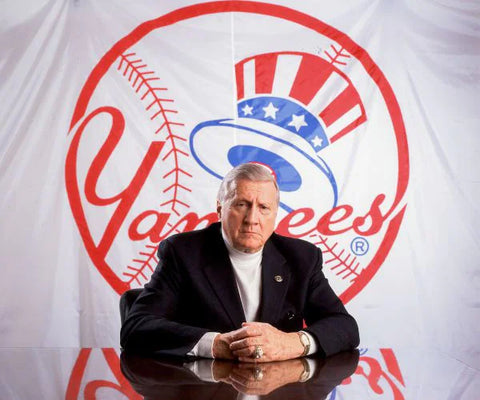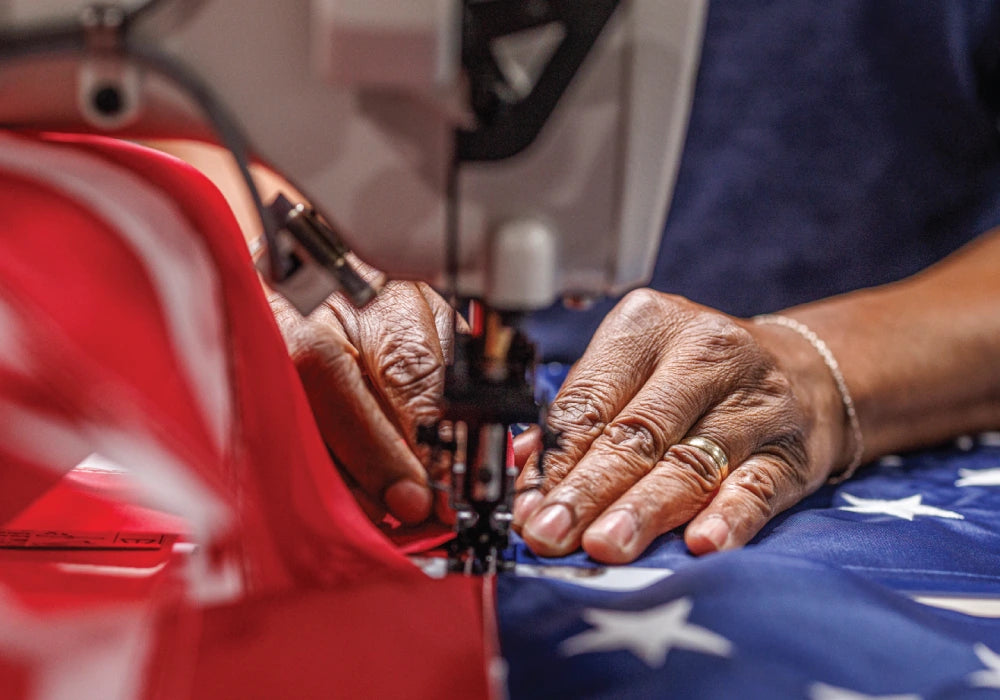December 31

1879
In the first public demonstration of his incandescent lightbulb, American inventor Thomas Alva Edison lit up a street in Menlo Park, New Jersey. Although the first incandescent lamp had been produced 40 years earlier, no inventor had been able to come up with a practical design until Edison embraced the challenge in the late 1870s. After countless tests, he developed a high-resistance carbon-thread filament that burned steadily for hours and an electric generator sophisticated enough to power a large lighting system.

1972
Roberto Clemente was killed along with four others when the cargo plane in which he is traveling crashes off the coast of Puerto Rico. Clemente was on his way to deliver relief supplies to Nicaragua following a devastating earthquake there a week earlier. At the end of September, Clemente had gotten his 3,000th hit in the final game of the season for the Pittsburgh Pirates. He was a hero in his native Puerto Rico, where he spent much of the off-season doing charity work. In 1973, Clemente was posthumously inducted into the Baseball Hall of Fame. In 2002, he was awarded the Presidential Medal of Freedom.

1999
The United States, in accordance with the Torrijos-Carter Treaties, officially handed over control of the Panama Canal, putting the strategic waterway into Panamanian hands for the first time. The treaty, signed in 1977 and narrowly ratified by the U.S. Senate, gave America the ongoing right to defend the canal against any threats to its neutrality. Crowds of Panamanians celebrated the transfer of the 50-mile canal, which links the Atlantic and Pacific oceans and officially opened when the SS Arcon sailed through on August 15, 1914. Since then, over one million ships have used the canal.
January 1


1863
A farmer named Daniel Freeman submitted the first claim under the new Homestead Act for a property near Beatrice, Nebraska. Signed into law in 1862 by President Abraham Lincoln, the Homestead Act gave citizens or future citizens up to 160 acres of public land provided they live on it, improve it, and pay a small registration fee. While the majority of early homesteads failed, more than 1.6 million farmers and ranchers eventually fulfilled their contracts and became landowners in the West.


1958
Johnny Cash played his first-ever prison concert at San Quentin. The concert inspired Merle Haggard, then a 20-year-old San Quentin inmate, to begin his journey towards becoming a country music legend. Of Johnny Cash’s prison debut, Haggard said this: “He had the right attitude. He chewed gum, looked arrogant and flipped the bird to the guards—he did everything the prisoners wanted to do. He was a mean mother from the South who was there because he loved us. When he walked away, everyone in that place had become a Johnny Cash fan.”

1962
The U.S. Navy Sea, Air, and Land Teams, The Navy SEALs, were established as a small, elite maritime military force to conduct Unconventional Warfare. The first two teams were recruited from the Navy's Underwater Demolition Teams, who had already gained extensive experience in commando warfare in Korea. Men of the newly formed SEAL Teams were trained in such unconventional areas as hand-to-hand combat, high-altitude parachuting, demolitions, and foreign languages. SEALs are typically ordered to capture or to eliminate high level targets, or to gather intelligence behind enemy lines. Formal training to become a SEAL is extremely rigorous, with less than 1% of candidates graduating and earning their "SEAL Trident."
January 2

1788
Georgia voted to ratify the U.S. Constitution, becoming the fourth state in the modern United States. Georgia, rich in export potential, was one of the most prosperous British colonies in America and was thus slower than the other colonies to resent the oppressive acts of the Parliament and King George III. During the war, Georgia was heavily divided between Loyalists and Patriots, and the British soon held most of the state. Savannah served as a key British base for their southern war operations, and the grim four-year British occupation won many Georgians over to the Patriot cause.

1974
President Nixon signed the Emergency Highway Energy Conservation Act, setting a new national maximum speed limit. Arab members of the Organization for Petroleum Exporting Countries (OPEC) protested the West’s support of Israel in the Yom Kippur War by stopping oil shipments to the United States, Japan and Western Europe. As part of his response to the embargo, President Nixon signed a federal law lowering all national highway speed limits to 55 mph. The act was intended to force Americans to drive at speeds deemed more fuel-efficient, thereby curbing the U.S. appetite for foreign oil. With it, Nixon ushered in a policy of fuel conservation and rationing not seen since World War II.

1980
In a strong reaction to the December 1979 Soviet invasion of Afghanistan, President Jimmy Carter asked the Senate to postpone action on the SALT II nuclear weapons treaty and recalled the U.S. ambassador to Moscow. These actions sent a message that the age of detente and the friendlier diplomatic and economic relations that were established between the US and Soviet Union during President Richard Nixon’s administration (1969-74) had ended. In 1980, Jimmy Carter lost the presidency to Ronald Reagan, who favored a more aggressive anti-Communist foreign policy. He dramatically increased U.S. defense spending and ramped up the nuclear arms race with the Soviets, whose faltering economy ultimately prevented them from keeping pace. The Soviet Union collapsed in 1991.
January 3


1938
Franklin Delano Roosevelt founded the National Foundation for Infantile Paralysis, which he later renamed the March of Dimes Foundation. A predominantly childhood disease in the early 20th century, polio wreaked havoc among American children every summer. Those who survived the disease usually suffered from debilitating paralysis into their adult lives. In 1921, at the age of 39, Roosevelt contracted polio and lost the use of his legs. With the help of the media and his Secret Service, FDR managed to keep his disease out of the public eye, yet his personal experience inspired in him an empathy with the handicapped and prompted him to the found the March of Dimes.

1973
A 12-member group headed by George Steinbrenner purchased the New York Yankees for $10 million from Columbia Broadcasting System, which owned the team since 1964. Known by many as "The Boss," Steinbrenner became one of the more controversial owners in sports history. Steinbrenner’s initial investment was quite small: $168,000, which was a little less than a 2% ownership stake. However, over the years he wrestled majority ownership of the team from others. When he died in 2010, Steinbrenner owned 57 percent of the team. Over the course of Steinbrenner's ownership, the Yankees won seven World Series and 11 American League pennants. The team is one of the most valuable in sports.

2004
The Mars Exploration Rover Spirit landed on the Red Planet. 21 days later, its twin, Opportunity, also arrived safely. In one of the longest and most successful missions in NASA history, Spirit would survey Martian geography for the next seven years. Opportunity remained active until June of 2018. The rovers' primary mission was expected to last 90 sols, the term used for Martian days. In March, scientists announced that they had made a momentous discovery: a survey of Martian rocks strongly suggested that water had once flowed there, and analysis of Opportunity's landing site indicated that it had once been the bed of a salty sea. Later in 2004, Opportunity also discovered the first meteorite to be found on Mars. The MER mission had a major impact on mankind's knowledge of our solar system.
January 4

1847
Samuel Colt rescued the future of his faltering gun company by winning a contract to provide the U.S. government with 1,000 of his .44 caliber revolvers. Before Colt began mass-producing his popular revolvers, handguns had not played a significant role in the American West. Expensive and inaccurate, short-barreled handguns were impractical for the most Americans. That began to change when Samuel Colt patented his percussion-repeating revolver in 1836. The heart of Colt’s invention was a mechanism that combined a single rifled barrel with a revolving chamber that held five or six shots. When the weapon was cocked for firing, the chamber revolved automatically to bring the next shot into line with the barrel.

1964
Patsy T. Mink was sworn in as the first Asian American woman and first woman of color to serve in the U.S. Congress. Throughout her career, the U.S. representative for Hawaii was a strong supporter of civil and women's rights, as well as an advocate for children, labor unions and education. Mink was a key author and sponsor of Title IX of the Education Amendments of 1972, which outlawed sex discrimination in any education program or activity receiving federal funding.

1965
In his State of the Union address, President Lyndon B Johnson laid out for Congress a laundry list of legislation needed to achieve his plan for a Great Society. On the heels of John F. Kennedy’s tragic death, Americans had elected Johnson, his vice president, to the presidency by the largest popular vote in the nation’s history. Following Johnson’s lead, Congress enacted sweeping legislation in the areas of civil rights, health care, education and the environment. The 1965 State of the Union address heralded the creation of Medicare/Medicaid, Head Start, the Voting Rights Act, the Civil Rights Act, the Department of Housing and Urban Development and the White House Conference on Natural Beauty.
January 5

1920
The New York Yankees major league baseball club announced its purchase of the heavy-hitting outfielder George Herman “Babe” Ruth from the Boston Red Sox for the sum of $125,000. Throughout the rest of the 20th century, the legacy of the lopsided trade continued to hover over major league baseball, as the Yankees won 39 AL pennants and 26 World Series titles and the Red Sox went 86 years without a World Series win. In 2004, the Sox finally shook the “Curse of the Bambino,” coming from behind to beat the Yankees in the AL Championship and beating the St. Louis Cardinals to win their first Series since 1918.

1933
Construction began on the Golden Gate Bridge, as workers excavated 3.25 million cubic feet of dirt for the structure’s huge anchorages. Following the Gold Rush boom that began in 1849, speculators realized the land north of San Francisco Bay would increase in value in direct proportion to its accessibility to the city. Soon, a plan was hatched to build a bridge that would span the Golden Gate, a narrow, 400-foot deep strait that serves as the mouth of the San Francisco Bay, connecting the San Francisco Peninsula with the southern end of Marin County. The Golden Gate Bridge officially opened on May 27, 1937, the longest bridge span in the world at the time. With its tall towers and famous trademarked "international orange" paint job, the bridge quickly became a famous American landmark, and a symbol of San Francisco.

1973
Columbia Records released Bruce Springsteen's debut album "Greetings from Asbury Park, N.J." While the album initially suffered from average sales, it received positive critical reviews. After recording, Columbia records president Clive Davis rejected the album due to it not having a potential single. Springsteen quickly wrote "Blinded By the Light" and "Sprit in the Night." In a career spanning six decades, Springsteen has become known for his poetic, socially conscious lyrics and energetic stage performances, sometimes lasting up to four hours. In 2003, the album was ranked at No. 379 in Rolling Stone's 500 Greatest Albums of All Time and as one of the "100 Greatest Debut Albums of All-Time" in 2013.
January 6

1838
Samuel Morse’s telegraph system was demonstrated for the first time at the Speedwell Iron Works in Morristown, New Jersey. The telegraph, a device which used electric impulses to transmit encoded messages over a wire, would eventually revolutionize long-distance communication, reaching the height of its popularity in the 1920s and 1930s. In 1843, Morse finally convinced a skeptical Congress to fund the construction of the first telegraph line in the United States, from Washington, D.C., to Baltimore. In May 1844, Morse sent the first official telegram over the line, with the message: “What hath God wrought!”

1975
Wheel of Fortune, one of the the longest-running syndicated game shows in American television, premiered on NBC. Created by television legend Merv Griffin and hosted since the early 1980s by Pat Sajak and Vanna White, Wheel is one of the most popular television shows in the world. Griffin, who had already created another iconic game show, Jeopardy!, conceived of Wheel as a combination between Hangman and roulette. The show's producers claim that over 1 million people have auditioned to be contestants and the show has paid out a total of more than $200 million. Painfully awkward or incorrect guesses by contestants have also been comedic fodder for generations of Americans.

1994
Olympic hopeful Nancy Kerrigan was attacked at a Detroit ice rink following a practice session two days before the Olympic trials. A man hit Kerrigan with a club on the back of her knee, causing the figure skater to cry out in pain and bewilderment. One of Kerrigan’s chief rivals for a place on the U.S. Figure Skating Team was Tonya Harding. With Kerrigan unable to skate, Harding won the championship and a place on the team. In mid-December 1993, Harding’s ex-husband, Jeff Gillooly, arranged the attack. Initially claiming no knowledge of the attack, Harding eventually admits she learned of Gillooly’s role after the championships but did not inform authorities.




